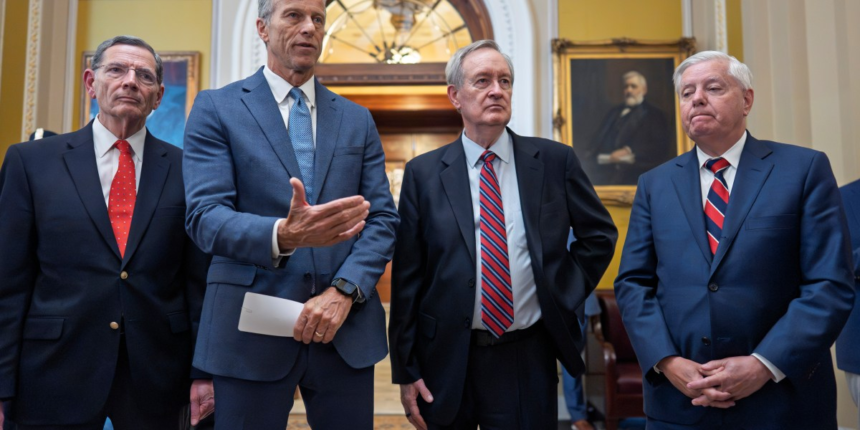“I don’t want to go too crazy with cuts,” he said. “I don’t like cuts.”
What started as a routine but laborious day of amendment voting, in a process called vote-a-rama, spiraled into an all-night slog as Republican leaders bought time to shore up support.
The droning roll calls in the chamber belied the frenzied action to steady the bill. Grim-faced scenes played out on and off the Senate floor, amid exhaustion.
Thune worked around the clock, desperately reaching for last-minute agreements between those in his party worried the bill’s reductions to Medicaid will leave millions more people without care and his most conservative flank, which wanted even steeper cuts to hold down deficits ballooning with the tax cuts.
Attention quickly turned to two other key senators, Lisa Murkowski of Alaska and Collins, who also raised concerns about health care cuts, as well as a loose coalition of four conservative GOP senators pushing for even steeper reductions.
Murkowski in particular became the subject of GOP leaders’ attention, as they sat beside her for talks. Then all eyes were on Paul after he returned from a visit to Thune’s office.
Senate Democratic Leader Chuck Schumer of New York said Republicans “are in shambles because they know the bill is so unpopular.”
Few Republicans appeared fully satisfied as the final package emerged, in either the House or the Senate.
Collins fought to include $50 billion for a new rural hospital fund, among the GOP senators worried that the bill’s Medicaid provider cuts would be devastating and force them to close.
While her amendment for the fund was rejected, the provision was inserted into the final bill. Still she voted no.
The Maine senator said she’s happy the bolstered funding was added, but “my difficulties with the bill go far beyond that.”
And Murkowski called the decision-making process “agonizing.”
She secured provisions to spare Alaska and other states from some food stamp cuts, but her efforts to bolster Medicaid reimbursements fell short. She voted yes.
“The big not so beautiful bill has passed,” Paul said.
Unable to stop the march toward passage, the Democrats tried to drag out the process, including with a weekend reading of the full bill.
Sen. Patty Murray of Washington, the ranking Democrat on the Appropriations Committee, raised particular concern about the accounting method being used by the Republicans, which says the tax breaks from Trump’s first term are now “current policy” and the cost of extending them should not be counted toward deficits.
She said that kind of “magic math” won’t fly with Americans trying to balance their own household books.









